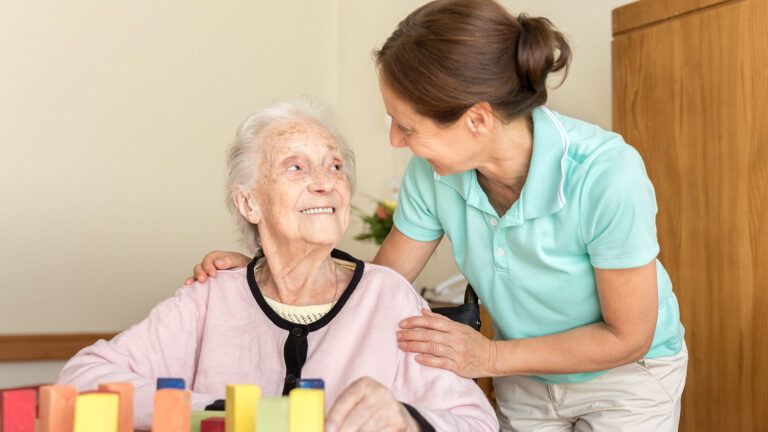Abigail Carney is the Activities Coordinator at Benjamin Rose Institute on Aging’s Gunning Park Rose Center for Aging Well.
As a busy and often tightly scheduled caregiver, carving out time for community activities is likely not a top priority. You may have taken on a volunteer project or joined a social organization out of a sense of obligation. But have you thought about involving yourself in activities that are actually fun and interesting to you? When you interact with others in ways that stimulate and fulfill you personally, it is not only self-gratifying, it can also boost your health. This in turn can allow you to recharge and help make you a better caregiver.
According to the National Institute on Aging, being involved in community activities can increase social engagement and improve the health of the people who partake in them through increasing overall happiness, lessening symptoms of depression, improving thinking abilities and lowering the risk of certain health conditions, such as dementia.
To help you find community activities that are right for you, consider these suggestions:
1. Know what you’re looking for
Keep online searches focused on specifics. For example:
- Teach an acting class for children
- Study painting at a local museum
- Take a dance class
- Read to people at a nursing home
- Serve food at a homeless shelter
- Work the polls on Election Day
- Join a mystery lovers book club at the library
A good place to start is with newspapers and magazines, as well as community bulletin boards, that list volunteer and social engagement opportunities. The following online resources offer additional ideas and information:
2. Plan regular respite time
As a caregiver, your time is already at a premium! Because of this, you should schedule your activity on a regular basis. An evaluation of the National Family Caregiver Support Program showed that caregivers who received 4 or more hours of respite per week reported decreased burden and a higher level of ability to continue their caregiving responsibilities. Respite will help you reset and be the best caregiver you can be to your loved one. It has the added benefit of giving you something to look forward to each week.
3. Think of opportunities for interaction
Placing yourself in situations that allow you to meet and interact with other people is a great way to combat the isolation you may feel as a result of daily caregiving. Socializing with others, developing relationships and receiving support can give you an outlet to unwind.
4. Pick up a new skill or go back to one you loved
It’s easy to get so involved in everyday life that we drop the things we once hoped to learn or accomplish. Now is the time to try something you have always wanted to or return to an activity that you used to love!
5. Enjoy yourself!
Keep in mind when deciding what to do, that it should be something that excites you. It’s okay to test out different activities until you arrive at the right one. There are only so many hours in your busy day, so have a good time!






